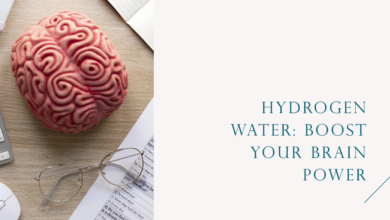The Role of NAD IV Therapy in Improving Cognitive Function

The quest for enhanced cognitive function has led to an exploration of various therapies and interventions. Nicotinamide adenine dinucleotide (NAD) IV therapy is an emerging treatment that promises to revitalize cellular function and combat cognitive decline. This coenzyme is pivotal for metabolic processes and maintaining cellular health, particularly within the brain. As such, increasing NAD levels through NAD IV therapy has become of significant interest to those seeking to boost their mental acuity. In this article, we will delve into the mechanisms, evidence, and considerations surrounding this novel therapy.
Exploring the Mechanism: How NAD IV Therapy Influences Brain Health
NAD IV therapy boosts brain energy levels by directly supplementing NAD+, vital for optimal neuron performance, preventing cognitive sluggishness. NAD+ is crucial for DNA repair and circadian rhythm regulation, enhancing neuronal health and cognitive functions like memory and concentration.
NAD IV therapy activates sirtuins, proteins with neuroprotective properties linked to longevity, guarding against brain aging and oxidative stress. NAD+ acts as a neurotransmitter, influencing the release of brain chemicals crucial for neuroplasticity and cognitive functions, fostering a resilient neural network.
The Link Between NAD+ Levels and Cognitive Functions
NAD+ levels in the brain are closely linked to cognitive functions like learning and memory. Depletion of NAD+ is associated with mitochondrial dysfunction, contributing to cognitive decline and neurodegenerative diseases. As we age, NAD+ reserves naturally decrease, leading to reduced cellular energy production and cognitive challenges.
NAD IV therapy shows promise in mitigating age-related cognitive decline by replenishing NAD+ levels. By boosting metabolism, it can improve cognitive performance and enhance brain function, addressing the brain’s constant need for energy supply. Numerous studies support the idea that maintaining balanced NAD+ levels through therapy can lead to significant cognitive improvements.
Clinical Evidence Supporting NAD IV Therapy for Cognitive Improvement
Emerging research is exploring the potential cognitive benefits of NAD IV therapy. Small-scale clinical trials show promising results, with participants experiencing improved mental clarity, focus, and memory.
Longitudinal studies indicate sustained cognitive enhancements over time with regular therapy. The medical community anticipates NAD IV therapy could become a standardized treatment for cognitive decline pending robust clinical trials to confirm safety and efficacy.
NAD IV Therapy as a Potential Treatment for Neurodegenerative Diseases

Neurodegenerative diseases like Alzheimer’s and Parkinson’s involve progressive brain cell loss. NAD IV therapy is gaining attention for its potential to slow or halt this deterioration. NAD+ plays a key role in cellular repair and protection, suggesting that NAD IV therapy could alleviate symptoms and address underlying causes of neurodegenerative diseases.
Research indicates NAD IV therapy’s neuroprotective effects could be vital in treatment. It may enhance mitochondrial function, reduce oxidative stress, and preserve neuron integrity, potentially slowing neurological decline. Advocates suggest regular NAD IV therapy could maintain brain health, delaying neurodegenerative symptoms and offering hope for age-related cognitive disorders.
Safety and Considerations When Opting for NAD IV Therapy to Boost Cognition
NAD IV therapy, while generally safe, can lead to mild side effects like injection site discomfort or nausea. It’s crucial to have qualified medical supervision during treatment. Personal health history and conditions should be evaluated beforehand to ensure suitability.
Considering the therapy’s growing popularity, accessibility and cost are important factors. Since it may not be covered by insurance, patients should weigh potential cognitive benefits against financial considerations.
Educational efforts are needed to manage patient expectations. While some may see significant cognitive improvements, results vary. Setting realistic expectations is crucial for a positive treatment experience.
Overall, NAD IV therapy shows promise for enhancing cognition. As research progresses, it could become a vital tool for promoting brain health. Safety and ongoing studies are crucial for its potential widespread use. This innovative treatment might offer significant benefits in combating cognitive decline.





